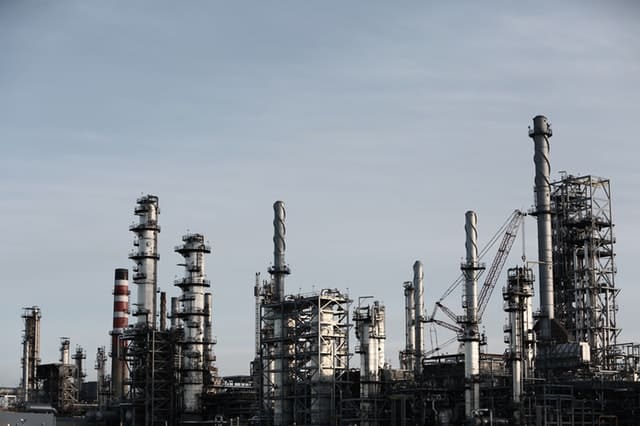North Dakota experienced a major oil boom for a number of years leading up to 2015. This commonly is known as the Bakken Boom. The “boom” has slowed since 2015, because of declining global oil prices, the state is still experiencing the economic benefits of significant increases in oil production in North Dakota.
Three Primary Reasons for the North Dakota Oil Boom
Industry experts have noted three primary reasons for the North Dakota Oil boom, of the Bakken Boom. These are:
- recent discovery of shale gas reserves in the United States
- initiatives designed to obtain independence from foreign oil resources
- sucessess in the use of horizontal drilling and hydraulic fracking
Bakken Boom Propelled North Dakota to Top U.S. Oil Producing State
The Bakken Boom propelled North Dakota upward as far as oil production states in the U.S.A. In 2007, North Dakota ranked 8th among the states in regard to oil production. The following year, North Dakota moved up to 6th place, overtaking New Mexico and Wyoming.
In 2009, North Dakota took another two space movement upwards, overtaking Louisiana and Oklahoma in oil production. Two years later, North Dakota surpassed California and became the number two oil producing state. Only Texas produces more oil that North Dakota.
The Impact of the Bakken Boom on North Dakota
The Bakken Boom occurred despite the Great Recession that started in 2008. The number of jobs created in North Dakota, across many sectors, as the result of the Bakken Boom gave North Dakota the lowest unemployment rate in the United States. This unemployment rate occurred despite the significant number of people from different places in the United States who migrated to North Dakota for work.
The state ended up with a $1 billion budget surplus. The state is reported to have a per capita GDP that is 29 percent above the national average.
Oil Leases and Royalties in North Dakota
The typical oil lease expires at the end of its primary term unless a lessee drills and starts producing oil. If this occurs, the lease continues for as long as oil is produced. The primary term typically if between three to five years.
As of 2012, oil royalties was paying local landowners between $50,000 and $60,000 a month, with some people earning more than $100,000. Researchers at the University of North Dakota estimated that the oil boom was creating 2,000 new millionaires in the state each year. By the end of 2011, the oil boom reduced unemployment in North Dakota to the lowest in the country.
Active Rigs in North Dakota
The number of active rigs in the state peaked in 2012 at 217. The rig count the following year was about 185. The number has remained at about this level since that time.
Each rig that went into operation during the boom created approximately 125 new, full time jobs. This represents a total growth of about 25,000 jobs. Some industry analysts estimate that over the course of the next 20 to 30 years, North Dakota have up to 48,000 new wells.
In addition to jobs directly connected to rigs and the oil industry, the Bakken Boom resulted in the creation of a broad spectrum of other types of jobs. This includes everything from teachers to service industry personnel healthcare providers and just about any other type of job imaginable.
Population and Infrastructure Following the Bakken Boom
The Bakken Boom has placed strains on infrastructure in North Dakota. This includes roads, water supplies, sewage systems and governmental services. Some counties say a doubling of their populations as a result of the Bakken Boom.
With all the positive elements associated with the Bakken Boom, there have been some other negative consequences as well. There has been some increase in crime. These increases include upticks in violent crime, drug trafficking, prostitution, and gun crimes.
In response to issues of crime, the FBI initiated Project Safe Bakken which stationed additional full time agents in North Dakota. This effort does seem to have had a positive impact and has reduced the incidence of crime in the state. This program is expected to stay in place for an indefinite period of time.
These is a housing shortage in some parts of the state. This has resulted in some oil workers being temporarily relegated to living in temporary housing, including tents in some instances (and usually for short periods of time). This has resulted in an increase in the cost of housing in certain parts of North Dakota.
====
Jessica Kane is a professional blogger who writes for Federal Steel Supply, Inc., a leading steel tubing suppliers of carbon, alloy and stainless steel pipe, tubes, fittings and flanges.




